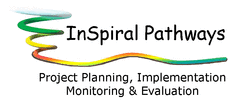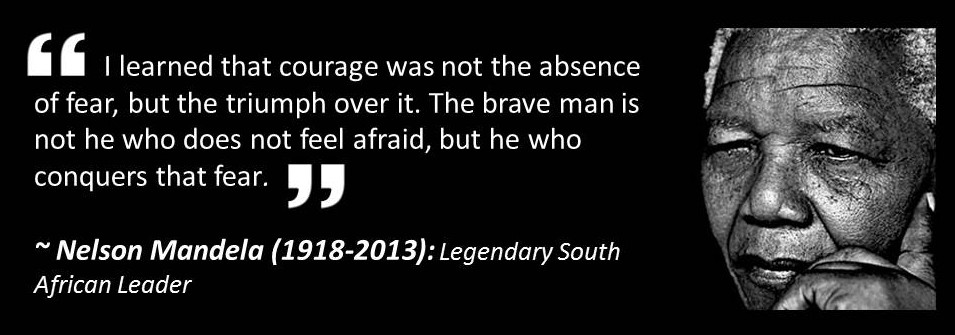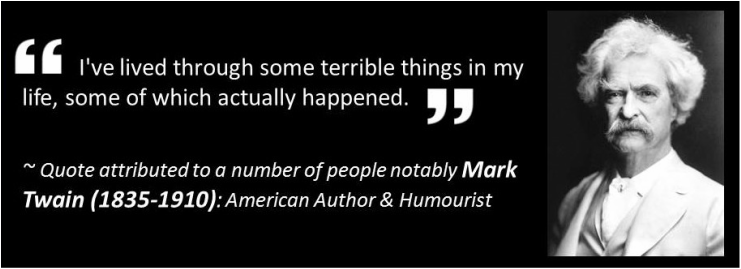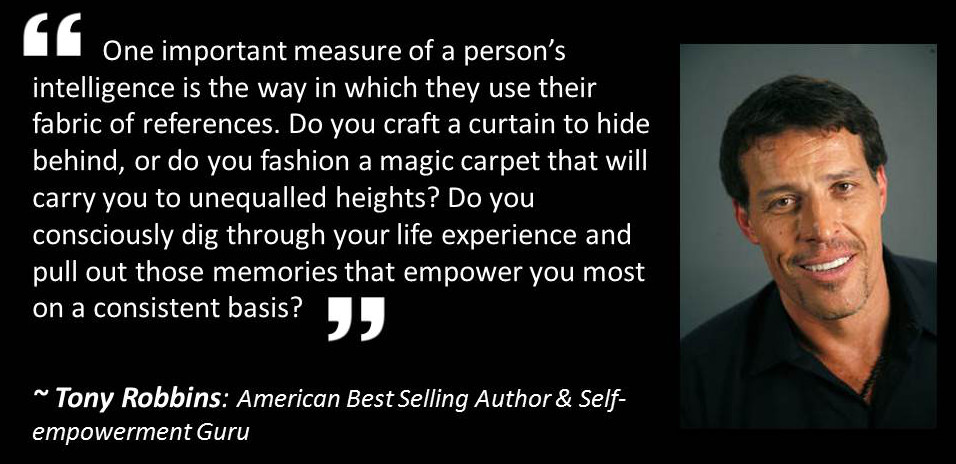|
In the sixth of an eight part series on the humble project management toolkit for better results in an uncertain world, I describe the second and third of the toolkit’s ‘compartments’ – “Understand the Project’s Ecosystem” and “Manage in Alignment with the Project’s Ecosystem” in which I outline the importance of developing adaptive management systems that take account of: the landscape in which the project is embedded; the project’s objectives and the processes implemented to contribute to these objectives; and organizational practices.
0 Comments
Why we need to overcome our negative bias and six ways to do itAll of you who are familiar with the Appreciative Inquiry approach to organisational, project and personal development will be aware of the following “Big Five” interlinked and overlapping principles that underpin the paradigm:
Why highlight the negative?What stands out like the proverbial sore thumb is my Principle No. 4 - We are programmed to pay attention to negative aspects of a situation. This does not conform to any of the principles I’ve seen in the AI literature. And without Principle 4 there is no need Principle 5, its antidote - We can override our programming by exercising our “appreciative muscles.” Given the fact that Principle 5 can neutralise Principle 4, what is the point of introducing Principle 4 in the first place? I believe that by highlighting the power of the negative we can provide a “safe space” in which to address those nagging doubts that many participants may harbour about AI. You know the sort of stuff that people feel and say – “this appreciative stuff is all very well but it won’t work in my [family, home, office, business, culture, country, etc.]”, “but sometimes we need to discuss bad stuff”, “I try to be positive but some things continue to wind me up” and most familiar of all “I’m not being negative, I’m just being realistic”. All of the above are justified sentiments, and I think we ignore such sentiments at our peril. Discussing them provides us with a valuable means of facilitating a new way of thinking in a manner that acknowledges the tenacious grip that “old paradigm thinking” holds on our individual and collective psyche. This helps the trainee to understand that negative feelings are reasonable though not always rational and that AI is a powerful way of addressing an inherent negative bias. Velcro and TeflonMost people are accustomed to problem-based paradigms. If you don’t believe me just watch any news bulletin for more than about a minute, consult most elementary psychology textbooks and find the non-existent or miniscule section on happiness, or leaf through any dictionary and count the numbers of words that describe positive versus negative emotions - according to one study seventy-four percent of the total words in the English language that describe personality traits are negative. Given this background, there is likely to be a degree of cynicism and resistance when Appreciative Inquiry is first introduced. Principle 4 acknowledges that a negative bias is the default setting for most people and groups. Even as a “born optimist” I know that this to be true. As Dr Rick Hanson, neuropsychologist and author of Hardwiring Happiness states “Our negative experiences stick to us like Velcro, while our positive experiences slide right off us like Teflon.” A typical example of this is my (internal) reaction to my children’s school grades. Even if most of the marks are high I am irresistibly drawn to the one or two lower grades. Of course as somebody versed in the art of “positive parenting” I would never give vent to the accompanying feelings of stress and urge to fix things but I feel these feelings nonetheless. Ok, if truth be told I probably do show these feelings more often than I should but at least I know that I shouldn’t! But ‘gut reactions’ such as those I describe above are the norm and are very deeply rooted for good reason. They have helped us and our ancestors to survive when our “nasty, brutish and short” lives were frequently subject to mortal dangers. Survival mode: keeps us alive - doesn’t help us to thriveWhy do we appear to be so irrationally negative? In a nutshell it is because of the evolutionary imperative to respond rapidly to danger – “survival mode” the familiar fight, flight or freeze response that allowed our ancestors to live long enough to become our ancestors. Nowadays the majority of us are not confronted by tigers as we go about our daily existence but our reactive response can be just as easily triggered by any number of “paper tigers” - perceived threats such as the audiences who question us, the bosses who appraise us, our offspring who disobey us, the spouse who ignores us, and even the anonymous drivers who disrespect us. Whether these perceptions are an accurate reflection of the intentions of these other people is immaterial. To paraphrase William Shakespeare’s Hamlet “there is nothing either stressful or not stressful, but thinking and feeling make it so.” Survival mode is manifested by the following physiological changes among others: elevated levels of the stress hormones such as adrenaline and cortisol (to prepare us to deal with sudden danger), raised breathing rate and blood pressure (to pump more oxygen around our body), increased perspiration (to prevent overheating), increased blood sugar (to boost energy where it is most needed), a reduction in the production of growth and sex hormones, a weakening of the immune system and decreased blood circulation to the digestive tract (to maximise resources available to deal with the immediate threat) and increased size and stickiness of platelets (to heal any wounds that might occur). These are great responses when our lives are under threat. But they do not stand us in good stead in the modern world when it comes to undertaking constructive everyday actions such as making decisions, collaborating with others, recalling information or having balanced discussions. The Antidote: Principle 4 -We can override our programming by exercising our “appreciative muscles”Setting the scene in this way helps to emphasise the fact that we shouldn’t beat ourselves up about our negative feelings - they are normal. I have always been a believer in the power of positive thinking but every silver lining has a cloud. My “positivity” has sometimes manifested itself as denial – a conscious effort to keep my subconscious mind and endocrine system in line (see my blog – Appreciative Inquiry - Denial by any other name. Denial of my own negative feelings could easily trap me in a double bind – feeling bad about some everyday thing and on top of that, feeling bad about the fact that I was feeling bad! An understanding of the evolutionary reasons for the reactive response can, at the very least, limit you to a single dose of bad feelings. Highlighting the fact that a negative viewpoint is simply one way of seeing the world allows us to question its usefulness to us in our day-to-day lives. Does it make for a positive work and home environment? Does it empower? Does it inspire? The answer to all these questions is likely to be something like “not in most cases.” The next question that comes to mind is “how can we address redress our negative bias?” This provides a platform upon which we can introduce a few of the growing number of approaches that we can use to shift us to a more positive outlook. But won’t this compromise our ability to go into survival mode when we are actually faced with a life or death situation? Assuming that you are able-bodies, you will do everything in your power to get out of the way as quickly as you can if are about to be run over by a bus, no matter how chilled out you most of the time. Millions of years of evolution will guarantee this even if you practice every positive thinking technique on the planet as long as you keep away from mind-altering drugs. In my introductory workshops I have highlighted the following six ways in which we can override our programming by building our “appreciative muscles”:
I examine each of these "muscle-building" approaches in my blog series on "Things I do… except when I don’t." ... (TIDEWID for short). 1. Asking empowering questionsI find all six approaches to be valuable and mutually supportive but only Number One, asking empowering questions, as part of the Appreciative Interview, is from the “Regulation Appreciative Inquiry Practitioners Toolkit”. There are plenty of excellent resources out there on how to conduct appreciative interviews, over ninety of which are listed in the AI Commons Practice Tools webpage: Positive Questions and Interview Guides. I highlight some empowering question fundamentals in my blog posting – Ask Empowering Questions: What Albert Einstein and Jeremy Paxman taught me. 2. Practicing gratitudeMy daily gratitude practice has helped me to appreciate the good times and to negotiate the inevitable tough times and I cannot recommend the practice too highly. I discuss the value of practising gratitude even for those situations which may appear to be unremittingly negative in my blog posting on the value of a daily gratitude practice - How I messed up my daily gratitude practice: Walking the tightrope between expressing appreciation and kidding ourselves. 3. Observing the thoughts that come to youObserving the thoughts that come to you is a method that allows you to disengage from disempowering thoughts so avoiding becoming enmeshed in those familiar spirals of negative thinking. I learned the technique from NLP and hypnotherapy expert, life coach and “head fixer” Ali Campbell who has stated that it is the single most powerful exercise he has done to improve his life. I outline this simple process in my blog on Decoupling Runaway Trains of Thought. 4. Cultivating stillnessThere are endless ways of cultivating stillness but a technique I particularly like is “Sixteen Seconds to Bliss” which I have adapted from the work of meditation teacher extraordinaire Davidji. I summarise this simple but powerful tool in my blog: Cultivating Stillness – Control, Alt, Delete for your Bodymind. 5. Embracing uncertaintyUncertainty pervades everybody’s lives and embracing it instead of fighting it helps allows us to view those inevitable “changes of a plan” as possibilities rather than roadblocks. In my blog posting – Embrace Uncertainty I outline some simple approaches I use for improving my relationship with uncertainty. 6. Being of serviceThe final way of building our “appreciative muscles I highlight in my introductory AI workshops is “being of service” – helping to make this world a better place. One rather dismal but widely held world view, a view upon which classical economics is founded, is that being selfish is in everybody’s best interest and it is competition alone that drives innovation and growth. This extreme form of social Darwinism ignores the fact that human beings must also collaborate to survive and thrive at every stage of their lives. To realise our full potential we must strive to be the best person we can be in the service of both ourselves and others. The universal truth of this viewpoint explains why we root for the heroes who fight for justice for all and against the villains who care only for their self-aggrandizement. I talk about how being of service can enhance your quality of life and outline ways in which you can maximise your contribution in my blog posting - Being of Service: Doing Well by doing Good. In Conclusion…I hope I have justified my “AI introduction with a negative twist.” Even if you disagree with the approach I hope that you will appreciate my intentions. The wonderful thing about the AI community is that it is a broad church with no concept of heresy; so nobody can ever be excommunicated! A little Postscript – EFT a seventh way to build your appreciative musclesIn my personal life I find Emotional Freedom Technique (EFT) or Tapping to be an excellent way of releasing negative emotions. Sometimes referred to as “psychological acupuncture”, EFT involves a sequence of gentle taps on acupuncture meridians or “tapping points” with your fingertips while talking through a particular issue of concern – a trauma, a phobia, a limiting belief or an ephemeral concern such as a looming deadline. I find that a few minutes of tapping rapidly reduces the intensity of my anxiety levels to near zero levels.
The jury is out on how exactly EFT works but there is a growing of evidence of its effectiveness. I do, however, have to confess a certain degree of bias as my lovely wife Julie Mauremootoo is a certified EFT practitioner. For the moment incorporating EFT into an Appreciative Inquiry workshop is likely to be a bit too radical for most of the folks I work with. However, I do foresee a time when EFT is incorporated into mainstream organisational development. Remember, you heard it here first! Appreciative Inquiry (AI) and its offshoot Appreciative Living are organisational and personal development paradigms that encourage inquiring about, learning from, and building upon what is working in order to facilitate positive change. The core of AI is the notion that what you focus on expands. Pioneered by David Cooperrider and the late Suresh Srivastva of Case Western Reserve University in the late 1980s, AI has been attracting a growing following and its principles have been successfully applied to a diverse range of organisations including Nutrimental, Hunter Douglas, GTE, Red Cross, British Airways, the United Religions Initiative and the US Navy. Appreciative Living is a programme that has adapted AI principles to personal development. Pioneered by Jackie Kelm, Appreciative Living now has registered practitioners in twelve countries. One of the biggest criticism of AI is that it doesn't address the negatives; that it, is a form of problem-avoidance and denial. This notion can be illustrated by the following scenario: a participant returns from an AI meeting full of energy and enthusiasm only to encounter the unchanged negative “realities” of office politics, budget cuts, delays in programme implementation, and so on. The rose tinted specs are yanked off and AI is filed away as “nice but not for the real world”. In such a case either AI has been poorly facilitated or the participant was sleeping during some vital segments of the workshop. Because AI IS designed to address the negatives, but not in a way that negates the positive aspects that exist in every situation. AI cannot afford to ignore negatives because if a burning issue is not attended to it will inevitably come back to bite you! Jackie Kelm paints the picture of our lives as a movie that constantly plays in front of us on an imaginary screen. This screen has a line going through the middle. On one side of the line are the positive things – talents, dreams, and creative ideas, to name a few. On the other side of the line are the negative things – fears, failures, weaknesses and so on. So assuming that AI has been “done right”, will it produce a cohort of reality-denying Pollyannas? In Jackie Kelm’s words:
The opposite is actually true. It may seem ironic, but spending time on the positive side gives you the courage, inspiration, and motivation to deal with the “bad stuff.” A well-facilitated AI workshop can help to start you off on this positive path but ultimately it takes persistent, purposeful practice to sustain the change. |
John MauremootooJohn Mauremootoo is a consultant with over 20 years of experience in diverse aspects of international development. Archives
February 2024
Categories
All
|





 RSS Feed
RSS Feed
